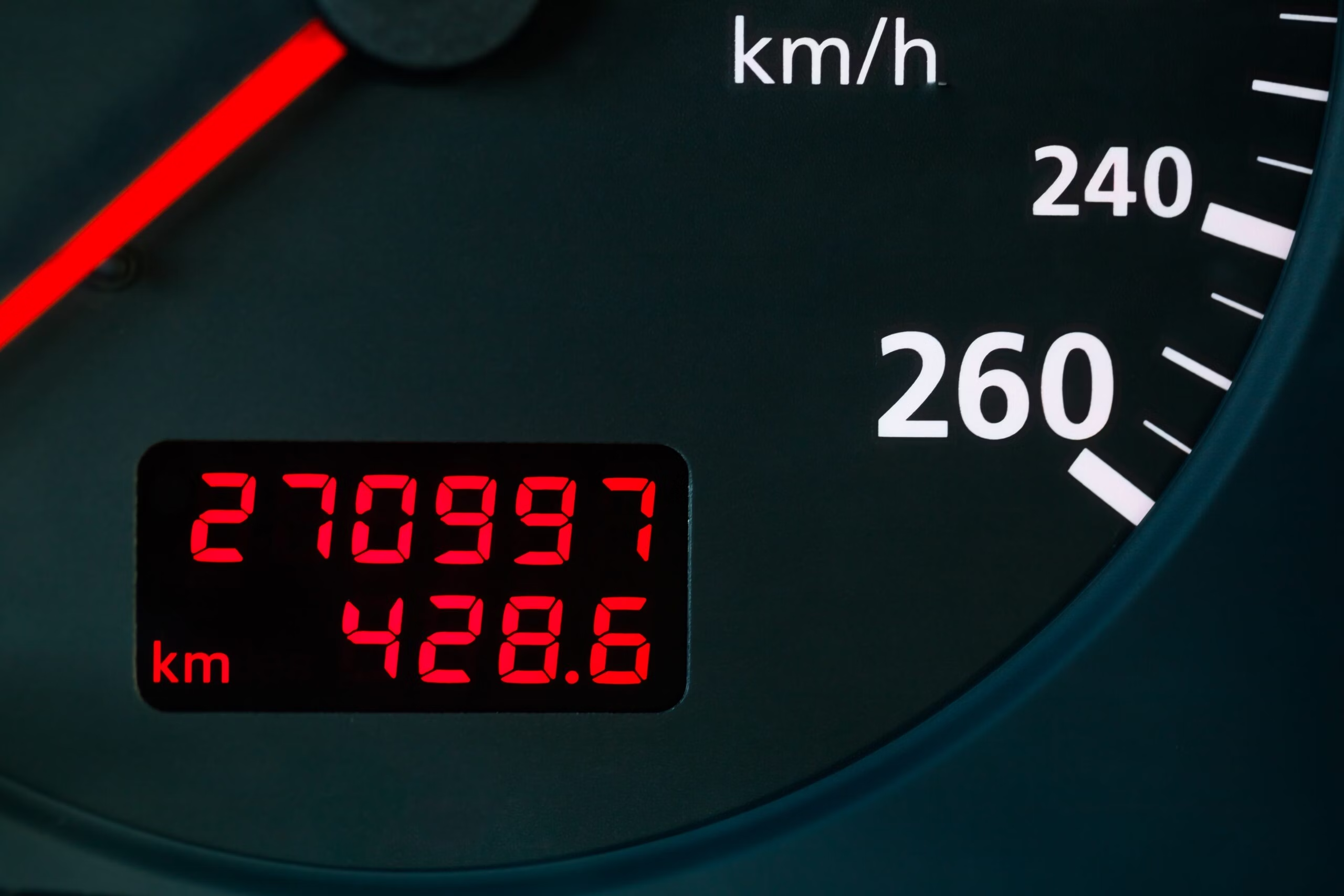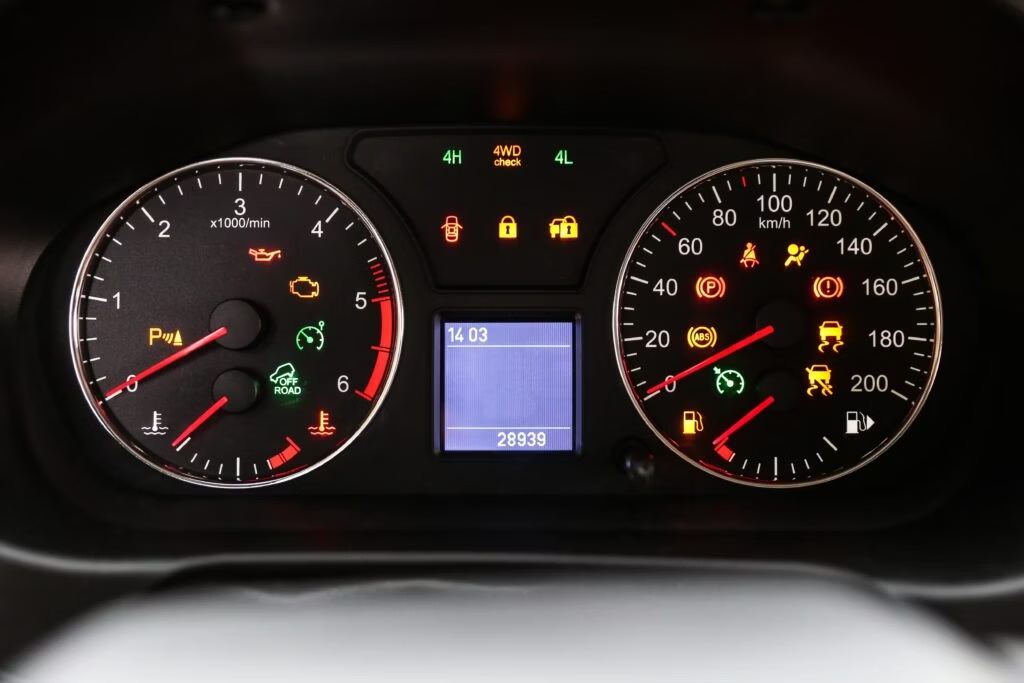What is the National Mileage Register?

The National Mileage Register (NMR) is a UK database that tracks vehicle mileage records to combat odometer* tampering. The NMR helps ensure accurate readings when buying or selling cars by logging and verifying mileage data from various sources.
It gives buyers peace of mind, knowing that the mileage reported matches historical records, and protects sellers from potential disputes over vehicle history.
Keep reading to learn more about the National Mileage Register, how it helps car buyers and sellers, and more.
*Odometer is the fancy name for the dial that measures car mileage!
- How the National Mileage Register works
- Mileage discrepancy explained
- The implications of mileage discrepancy
- FAQs

The importance of accurate mileage for vehicle buyers and sellers
Accurate mileage is crucial for buyers and sellers as it reflects a vehicle’s true wear and tear.
For buyers: It ensures they aren’t overpaying for a car with misleading mileage, protecting them from potential issues and maintenance costs.
For sellers: Accurate mileage builds trust and supports a fair market value, reducing disputes and enhancing the vehicle’s appeal. Accurate mileage data is essential for a transparent and reliable transaction.
How the National Mileage Register works

Where does the NMR get its information?
The National Mileage Register (NMR) gathers mileage data from various sources, including:
- MOT tests
- Insurance claims
- Vehicle service records
- Auction houses
- Vehicle sales transactions
- Fleet operators
By compiling these records, the NMR builds a comprehensive history of each vehicle’s mileage, which helps detect discrepancies and prevent odometer fraud.
How to report to the NMR
Reporting to the NMR involves submitting mileage information from various vehicle-related events. Service centres, garages, and MOT testing stations update the vehicle’s mileage during routine checks. Insurance companies and fleet managers also contribute mileage data from claims and regular inspections.
This information is verified and entered into the NMR database, ensuring a reliable record of each vehicle’s mileage history.
Mileage discrepancy explained
What constitutes a mileage discrepancy?
A mileage discrepancy occurs when there’s a mismatch between reported and recorded mileage figures for a vehicle. This includes:
👉 Sudden, unexplained drop in mileage
👉 Inconsistencies between MOT records and service logs
👉 Mileage figures that deviate significantly from the vehicle’s expected usage pattern
Such discrepancies often indicate potential odometer tampering or reporting errors, impacting the vehicle’s value and reliability.
How are discrepancies identified and calculated?
Comparing mileage data from various sources, including MOT records, service logs, and insurance claims, helps identify discrepancies. The National Mileage Register (NMR) cross-references this information to detect inconsistencies.
Discrepancies are calculated by analysing the differences between reported mileages at different intervals and checking for sudden drops or unrealistic increases in mileage. Any significant variations are marked for further investigation to determine if there is odometer tampering or other related issues.
The implications of mileage discrepancy
Impact on car value and insurance
Mileage discrepancies can significantly affect a car’s value and insurance premiums. A vehicle with inconsistent mileage often faces a reduced market value due to doubts about its condition and authenticity.
Insurance companies may adjust premiums or refuse coverage based on the increased risk of potential odometer tampering. Accurate mileage is crucial for maintaining a car’s value and ensuring appropriate insurance coverage.
The legal consequences for selling a car with a known discrepancy
Selling vehicles in the UK with known mileage discrepancies without disclosure is illegal and considered fraudulent. Sellers must provide accurate mileage information and disclose any known discrepancies to potential buyers.
Failure to do so can lead to legal repercussions, including fines and claims for misrepresentation. The Consumer Rights Act 2015 requires sellers to be honest about a vehicle’s history, ensuring transparency in all transactions.
FAQs
When would the NMR contact me?
You might receive communication from the NMR about a discrepancy in your car’s mileage record or if the NMR needs to verify its mileage information. This ensures accurate records and prevents odometer fraud.
Can mileage records be amended on NMR databases?
Yes, it’s possible to amend mileage records in the NMR database. You can update records by providing valid documentation that supports the correct mileage. This helps maintain accurate and up-to-date vehicle histories, ensuring reliability in the NMR system.

Is it time to sell your car?
Ready to learn more about valuing, maintaining, and selling your car? Check out our other guides here, covering everything from hybrid and electric car depreciation to converting your vehicle to dual-LPG fuel.
The information provided on this page is for general informational purposes only and should not be considered as professional advice.